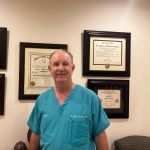The best facial plastic surgeon can help you get your desired results
The best facial plastic surgeon in Charlotte NC is professionally equipped with skills and state-of-the-art equipment to help you get the desired results. Facial plastic surgery has gained immense popularity in recent years, with many individuals seeking to enhance or alter their facial features. While the goal of these procedures is to achieve a desired appearance, the number of surgeries required can vary significantly from patient to patient. In this article, we will explore the factors that influence the frequency of multiple facial plastic surgeries to attain the desired appearance.
Patient Expectations and Goals
One of the primary determinants of the number of surgeries required is the patient’s expectations and goals. Some patients may have a very specific vision of the outcome they desire, and achieving this vision may necessitate multiple surgeries. Others may be more flexible in their expectations, which could lead to a single surgery being sufficient.
Complexity of the Desired Changes
The complexity of the desired changes plays a crucial role in determining how many surgeries are needed. For example, minor alterations like a simple rhinoplasty or eyelid surgery might be accomplished in a single procedure. However, if a patient seeks comprehensive changes to multiple facial features, such as a combination of rhinoplasty, facelift, and chin augmentation, multiple surgeries may be required to address each aspect adequately.
Patient Anatomy
Individual anatomy can significantly impact the number of surgeries required. Some patients have facial features that respond well to surgery and require minimal interventions, while others may have unique anatomical characteristics that necessitate multiple procedures for a successful transformation.
Surgeon’s Skill and Experience
The expertise of the plastic surgeon performing the procedures is of paramount importance. Highly skilled and experienced surgeons are often more adept at achieving a patient’s desired look in a single surgery. They can optimize techniques and make precise adjustments, reducing the need for subsequent surgeries.
Healing and Recovery
The body’s healing and recovery processes can also influence the number of surgeries. In some cases, patients may need additional surgeries due to complications, slow healing, or suboptimal results from a previous procedure. Conversely, patients who heal well and maintain their results might not require additional surgeries.
Budget and Time Constraints
Practical considerations, such as budget and time constraints, can limit the number of surgeries a patient undergoes. Multiple surgeries can be costly, and not all patients are willing or able to invest in multiple procedures. Additionally, the time required for recovery and healing can be a limiting factor for some individuals.
Consultation and Planning
The consultation phase with the plastic surgeon is critical. During this stage, the surgeon and patient should discuss the desired outcomes, assess the feasibility of achieving those goals, and develop a comprehensive treatment plan. This planning stage is essential for setting realistic expectations and determining the number of surgeries needed.
Psychological and Emotional Factors
Psychological and emotional factors can also influence the decision to undergo multiple surgeries. Some patients may develop body dysmorphic disorder, where they continually seek perfection and undergo multiple surgeries without being satisfied. It’s crucial for both the patient and the surgeon to assess and address these factors to ensure that surgery is the right course of action.
The frequency of multiple facial plastic surgeries required to achieve the desired appearance in a patient is a complex and individualized matter. It depends on various factors, including the patient’s expectations, the complexity of the desired changes, the surgeon’s skill, and many practical considerations. A thorough consultation and planning process, along with realistic expectations, are essential for ensuring that the patient is satisfied with the results while minimizing the number of surgeries needed.
Preoperative Preparation and Aftercare
Proper preoperative preparation and postoperative care are crucial in minimizing the need for multiple surgeries. Patients should follow their surgeon’s guidance on pre-surgery requirements, such as quitting smoking, maintaining a healthy lifestyle, and adhering to a recommended skincare routine. After surgery, adherence to the prescribed postoperative care instructions is equally important. This includes rest, wound care, and avoiding any activities that could hinder the healing process.
Revisions and Touch-Ups
In some cases, patients may opt for revisions or touch-up procedures after their initial surgery. These are not necessarily multiple surgeries to reach the desired appearance, but rather minor adjustments to refine or enhance the results. Revisions or touch-ups may be needed due to factors such as minor asymmetries, scarring, or natural changes in the body over time. It’s important for patients to communicate openly with their surgeon about their post-surgery experience and any concerns they may have.
Long-Term Commitment to Results
Facial plastic surgery is a long-term commitment to achieving and maintaining a desired appearance. Patients should understand that aging, lifestyle choices and other factors can impact the longevity of the results. Regular follow-up appointments with the surgeon can help ensure that the desired appearance is maintained, and further surgeries may be recommended or discussed as needed.
The number of facial plastic surgeries required to achieve a patient’s desired appearance is influenced by a multitude of factors. While some individuals may attain their goals with a single procedure, others may require multiple surgeries to achieve more complex changes. The key to success is a combination of realistic patient expectations, skillful surgical technique, thorough planning, and appropriate aftercare. It is essential for patients to communicate openly with their surgeon, and together, they can work towards reaching the desired appearance effectively and safely. Facial plastic surgery should always prioritize the patient’s well-being and satisfaction with the results.
Visit the best facial plastic surgeon in Charlotte NC
Contact Dr. Sean Freeman at Only Faces, Charlotte’s most experienced rhinoplasty surgeon and top facial plastic surgeon, to schedule a consultation to find out what procedure is right for you. Call today.


